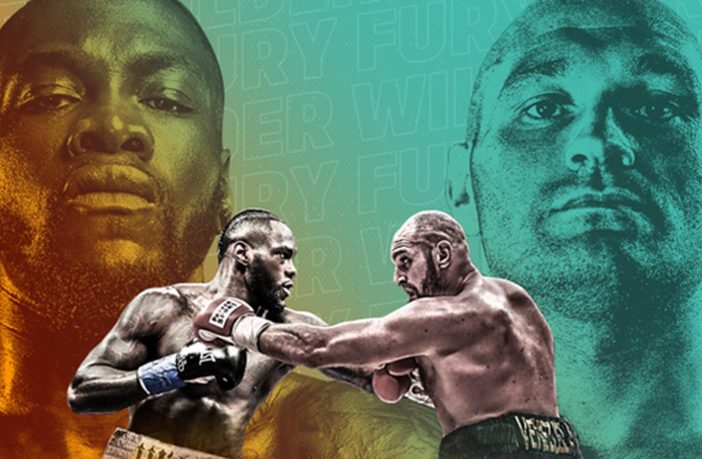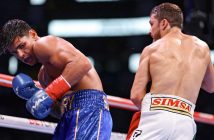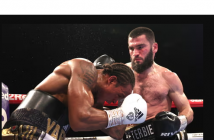Deontay Wilder vs Tyson Fury has practically everything you could want in a heavyweight fight. First and foremost, it’s a meaningful clash between two of the three top fighters in the historic division. But it means more than that; not just for the heavyweight division, but for boxing itself.
Heavyweight Hibernation
Just over five years ago, hardcore and casual fans alike were often speaking of Heavyweight boxing as one might reminisce over a deceased family member. So many memorable reigns and battles had colored the apex category of pugilists that it was impossible to reflect on boxing’s greatest eras without singing its praises. From the mania of Mike Tyson and his eventual conquerors Holyfield and Lewis; Larry Holmes’ preceding dominance; all the way back to Ali’s Golden Era, with Louis and Marciano and Liston impressing the world before him, and Johnson and Dempsey before them. The royal succession of greatness at the top had always delivered on the promise of continued quality.
But for over a decade, that feeling had been lost. Gone were the days when the Heayvweight champion was a household name and the sport’s ambassador to the world. No longer did the skilled giants and their worthy contenders dominate headlines and capture the imaginations of spectators. Was this a mere symptom of the sport’s decline, or itself a cause of dwindling public engagement?
It was one name, manifest in two towering marble-cut bodies, that was blamed: Klitschko. It would be unfair to lay the blame solely at the feet of the serially victorious brothers Vitali and Wladimir. They certainly weren’t the architects of a less athletic and technically unrefined generation of heavyweight contenders. But it can’t be denied that their reign was treated with varying degrees of contempt, or worse, indifference, by boxing fans worldwide. Was their style too boring? Often yes, though they each scored plentiful knockouts. Was it because they were European, not American like the heroes of old? Perhaps partly. Or was there simply never truly a credible challenge to their binary supremacy?
A Welcome Interruption
Whatever the reason, that all changed the night that Tyson Fury bested Wladimir Klitschko – now the only remaining brother to hold the titles – in his adopted home of Germany. The thrill of the contest wasn’t in the landed punches, but in the minute-to-minute revelation that Fury had enough tricks in his bag to take control away from the champion; one who had simplified and perfected the art of imposing his style on lesser (and often smaller) men. The nearly 10 year freeze had finally thawed.
While Fury’s battle with mental health prevented him from embarking on a long run of defenses, his victory still managed to blow the division wide open. Suddenly, it wasn’t guaranteed who would next become “the baddest man on the planet”. Klitschko’s denied chance at revenge turned instead towards the touted British superstar Anthony Joshua, who then proved that he had what it took to be Heavyweight Champion in an instantly classic war.
At the same time, it became easier to notice the hidden talents emerging in the division. Cuban Olympian Luis Ortiz, domestic talents turned world-level contenders Joseph Parker and Dillian Whyte; these aren’t overweight no-hopers doomed to succumb to jab-and-grab tactics. And against this backdrop, Joshua’s popularity continues to grow, and the threat of Deontay Wilder’s thunderous power has become impossible to dismiss.
The Bronze Bomber’s Road to Legitimacy
To some, Wilder himself exemplifies how far the sport has fallen. Only having started boxing at age 20 to provide for a daughter suffering from Spina-Bifida, Wilder is not the most graceful in the ring. His steps are purposeful but heavy, and wide punches often leave him stumbling off-balance. His power can sometimes feel like a shortcut; a cheat code that he would be useless without in a contest of pure skill. But it is unfair to punish Wilder for possessing a God-given talent, and it would be wiser to acknowledge what he has come to do well. His lengthy jab, when he sticks to it, is sharp. He can close the distance at great speed to strike suddenly, pawing and lowering an opponent’s guard as he does so, and his devastating straight right hand is as proficient as any the sport has witnessed. Power alone is useless without delivery, and Wilder has thus far delivered in every single fight.
Still, his resume has done him no favors with detractors. After beating Bermane Stiverne for the vacant WBC title-a win that hasn’t aged quite so well-Wilder’s unremarkable opponents have left a lot to be desired. One reason for this was completely outside of his control; Alexander Povetkin, who would have been his highest ranked opponent to date, was caught with repeated positive tests for steroids. But others might be attributed to promotional laziness, an allegation leveled at more than one of adviser Al Haymon’s clients.
Perhaps this frustrating lack of significant opponents made his victory over Luis Ortiz all the sweeter. His most legitimate opponent yet, Ortiz – who was undefeated, a southpaw, and well-schooled from his days as a Cuban amateur and gold medalist – gave him all he could handle. After losing most of the rounds and being nearly stopped himself, Wilder finally timed Ortiz andfinished him off in a matter of seconds. The lesson here seemed to be that even with a disparity in skill, Wilder will always have a bigger margin of error than his opponents. He can make mistakes, lose rounds, and even get hurt; like Joshua, Wilder gained a measure of respect in proving he has the heart. But if his opponent let down their guard or left themselves open for a counter punch, a dominant performance could instantly dissipate into defeat. There’s something to be admired about a relative novice climbing the ranks of more learned men until the only opponents left are the best there are.
The Return of the King
If Wilder’s struggles have shown resilience and determination, then Fury has more than matched them. Much has been said about Fury’s battle with depression, which saw substance abuse and a massive weight-gain cast doubt on his ever resuming his career. The coverage and exposure afforded to his story of recovery and triumphant return to the ring not only helps boost Fury’s profile, but also contributes to a growing movement for the recognition of mental health as a universal concern. With the sport having its fair share of scandals and embarrassing episodes, it’s nice to see a fight promotion do a little more than just sell tickets and pay-per-view buys.
That’s not to suggest that the promotion has been stale or lacking competitive bite. Now tempered by a newfound mental clarity, Fury’s wit is still as sharp as ever. His numerous jests and unapologetic bravado accompany heartfelt reflections on his personal and professional life, offering a complete and honest picture into the mind of Tyson Fury. The versatility and poignancy of his rants and speeches parallel his varied in-ring abilities. He is elusive on the outside, constantly feinting and parrying, able to switch to a southpaw stance for extended periods of time, and no stranger to coming forward to land body-head combinations.
Wilder, the son of a preacher, hits back with his own Alabama charisma, making for just the right amount of entertaining back-and-forth. Talk of his demonic in-ring alter-ego provokes the bravado of the Gypsy King. One gets the sense that each of them has been waiting for the right verbal sparring partner their whole careers.
The Nuts and Bolts
As interesting as their individual journeys have been, the real intrigue lies in how their fists, rather than their words, will interact with each other. On paper, each man is equipped with the tools for the other’s deconstruction.
Fury’s ring generalship and defensive qualities are sure to frustrate Wilder’s clumsy advances and telegraphed shots. Wilder’s punch selection is not the most varied, and he has yet to perfect the art of winning rounds. If he doesn’t get the finish, could he possibly score enough points against a mobile Fury for a decision win? Or will he finally (and maybe unfairly) be considered “exposed” as a one-trick-pony who failed to reach the elite?
On the flip side, Fury’s defensive prowess has never encountered such danger, housed in so athletic and long a frame. This won’t be the timid hesitation of an aging champion, but the hungry determination of a warrior who only needs to get his timing right once to taste victory.
When Fury retreats to the ropes to reset, he will be more vulnerable than ever before, and might find himself visiting the canvas as he has done twice, before the many miles of abuse had run into his body. Whether Fury gets stopped or not, Wilder’s power is an obstacle.
All great fights have a level of uncertainty about them, and this one is no exception.
Bigger Than the Sum
Beyond the trash-talk and even the mechanics of the fight itself, we have the rarity of a Heayweight fight that feels like it matters. It matters because the lineal champion, undefeated, will be fighting the WBC champion- also undefeated. It matters because their personalities are even bigger than their trunks size, and fans are desperate for a real character to root for. And it matters because of what comes next. Anthony Joshua and thousands of British fans are waiting for the victor to emerge, so they can settle once and for all who will carry the torch of Heavyweight Boxing into the next era.
It’s been too long since we’ve had this many juicy ingredients in a Heayvweight Championship bout. It may not wholly restore the division or the sport overnight, but thanks to this Saturday night, these two might just get people paying attention again.





1 Comment
Pingback: fue